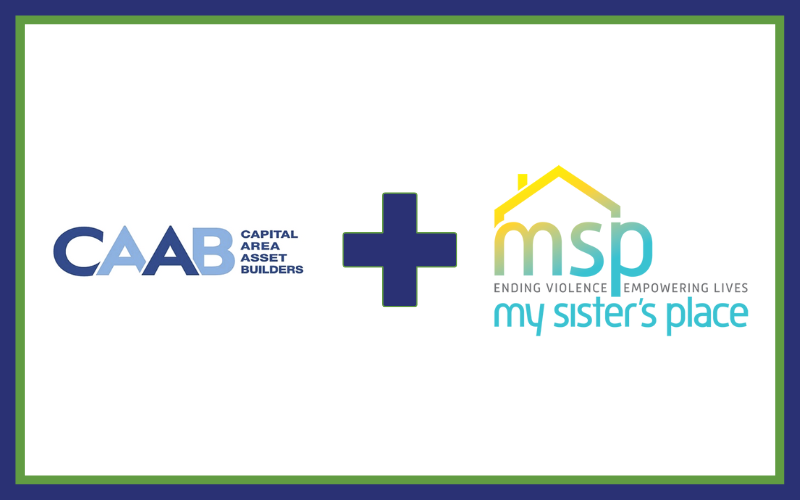This month, two recent Many Hands grantees are launching a new partnership to help provide financial security to victims of domestic violence trying to rebuild their lives. My Sister’s Place (MSP) and Capital Area Asset Builders (CAAB), both 2022 MH grant recipients, launched their new program February 1st to offer emergency cash transfers and other financial services to MSP clients.
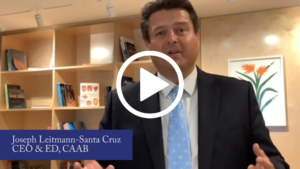 Both nonprofits’ leaders agree that the partnership is one of the benefits that grew out of the Many Hands grant process. According to MSP Executive Director Mercedes Lemp, she connected with CAAB CEO & ED Joseph Leitmann-Santa Cruz last summer, shortly after the two organizations were awarded their Many Hands grants. She says it’s wonderful to have partners that are experts at what they do and also to know that a partner organization has been vetted through the Many Hands grantmaking process. “I have always been a big fan of [CAAB],” she says. “They do great work, so we were really excited to see them also be a grantee.”
Both nonprofits’ leaders agree that the partnership is one of the benefits that grew out of the Many Hands grant process. According to MSP Executive Director Mercedes Lemp, she connected with CAAB CEO & ED Joseph Leitmann-Santa Cruz last summer, shortly after the two organizations were awarded their Many Hands grants. She says it’s wonderful to have partners that are experts at what they do and also to know that a partner organization has been vetted through the Many Hands grantmaking process. “I have always been a big fan of [CAAB],” she says. “They do great work, so we were really excited to see them also be a grantee.”
Mercedes believes this is the first cash transfer program in the country dedicated to helping victims of domestic violence. She notes that experts who study domestic abuse report that economic dependence on an abusive partner is the most common reason victims stay with their abusers. She also says many victims are prevented from getting jobs and have little or no financial literacy. The new program is designed to help victims build financial security, so they can create new, independent lives.
In addition to providing emergency cash transfers, CAAB will help MSP clients set up bank accounts and offer them financial literacy programs, as well as tax and benefits counseling. The initial phase of the program is expected to provide 30 families each with $500 a month for two years. MSP has received funding from the Greater Washington Community Foundation and the William S. Abell Foundation and is seeking additional support so they can serve even more clients.
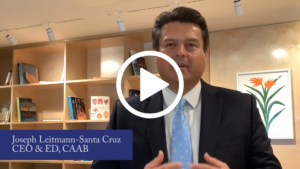 The partnership with MSP is just one of the ways CAAB helps low- and moderate-income families in the DC area take control of their finances, increase their savings, and build wealth for a better future. Joseph says CAAB works to close the racial wealth gap through four sets of services: cash transfers—giving unconditional liquid assets to low-income families experiencing unemployment; matched savings to help families generate wealth; financial literacy education about money management, bank accounts, and the Earned Income Tax Credit; and help with credit building. These programs are highly effective: A recent survey of participants found that 89% percent had improved their financial status, with 69% reporting an increase in their credit score and 84% reporting an increase in income and assets.
The partnership with MSP is just one of the ways CAAB helps low- and moderate-income families in the DC area take control of their finances, increase their savings, and build wealth for a better future. Joseph says CAAB works to close the racial wealth gap through four sets of services: cash transfers—giving unconditional liquid assets to low-income families experiencing unemployment; matched savings to help families generate wealth; financial literacy education about money management, bank accounts, and the Earned Income Tax Credit; and help with credit building. These programs are highly effective: A recent survey of participants found that 89% percent had improved their financial status, with 69% reporting an increase in their credit score and 84% reporting an increase in income and assets.
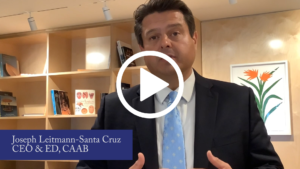 CAAB has been running its matched savings program since the nonprofit was founded in 1996. Joseph says it helps families realize their long-term goals of buying a first home, getting a college degree, or starting a business. He notes that in the past two years, the matched savings program has seen more than 600 families save $1.5 million and receive more than $3 million in matched savings.
CAAB has been running its matched savings program since the nonprofit was founded in 1996. Joseph says it helps families realize their long-term goals of buying a first home, getting a college degree, or starting a business. He notes that in the past two years, the matched savings program has seen more than 600 families save $1.5 million and receive more than $3 million in matched savings.
In addition, tens of thousands of low- and moderate-income families benefit each year from CAAB’s education programs and media outreach efforts, and around 3,000 community members receive direct help through one-on-one counseling or CAAB’s targeted programs. With the MH grant and other recent grant awards, Joseph hopes CAAB will be able to double, or perhaps triple, the number of clients served over the next three years. Partnerships like CAAB’s relationship with MSP and another recently announced agreement to manage cash transfer programs for Martha’s Table are integral to to these efforts.
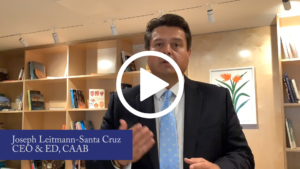 Joseph is proud that CAAB is able to help so many DC area families achieve the American dream of home ownership. However, he says the sustainability of that wealth creation depends not only on the families’ own actions but also on broader efforts to fight gentrification in Washington, DC.
Joseph is proud that CAAB is able to help so many DC area families achieve the American dream of home ownership. However, he says the sustainability of that wealth creation depends not only on the families’ own actions but also on broader efforts to fight gentrification in Washington, DC.
-Stephanie Nealer


